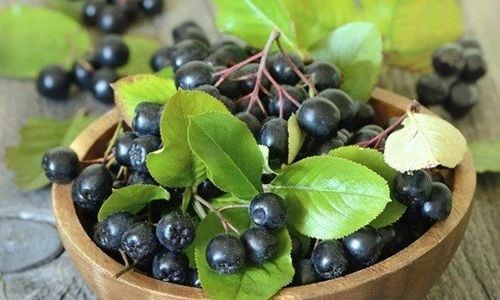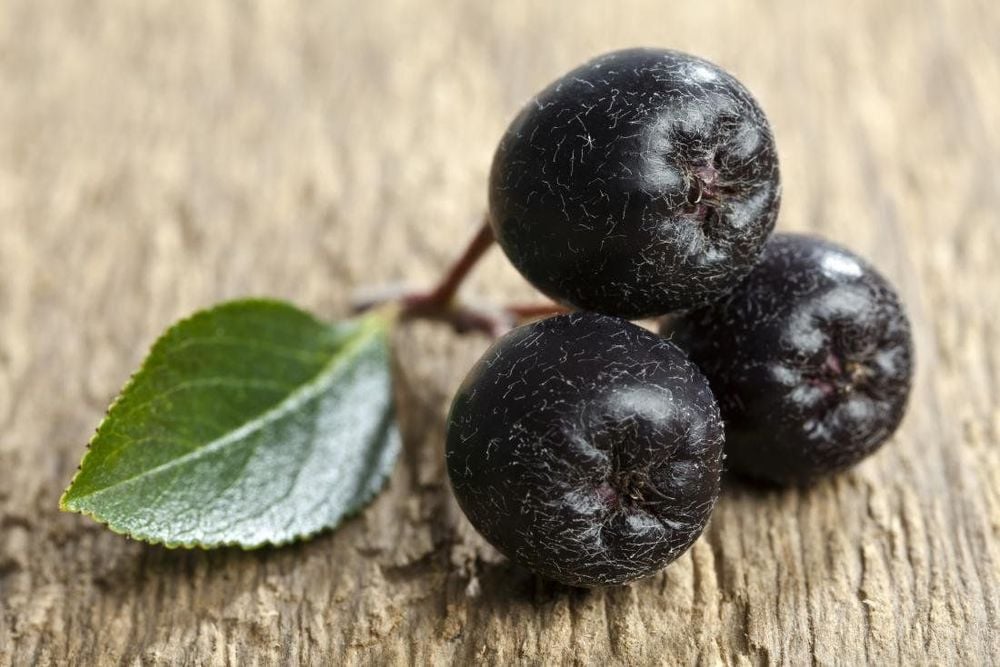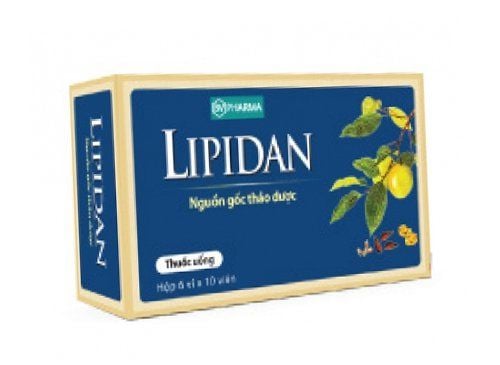This is an automatically translated article.
Chokeberry or Aronia is a fruit commonly used as food in Russia and parts of Eastern Europe. People use chokeberry for metabolic cardiovascular disease, high cholesterol, high blood pressure, cancer, and other diseases. Chokeberry contains antioxidants and other chemicals. These chemicals may help protect the heart and blood vessels, reduce swelling and blood sugar, and kill cancer cells. The following article will clarify the effects of chokeberry fruit.1. Things to know about chokeberry
Chokeberry, also known as Aronia, is a shrub native to North America, now grown in Eastern Europe. “Aronia” usually refers to the berries that grow on shrubs. These aronia berries are also known as macadamia berries because of their drying effect on the mouth. Aronia berries can be eaten fresh or used as an ingredient in foods, such as baked goods, juices, and teas. Aronia berries are small, dark fruits that have become popular with health-conscious consumers. They are considered one of the richest dietary sources of plant antioxidants, believed to provide many health-promoting properties.Berries are believed to provide many health benefits, including anti-cancer properties. There are many suggested health benefits of aronia that are linked to high levels of a nutrient called polyphenols. A 2015 analysis in the journal Food Technology & Biotechnology notes that previous research has found aronia to have the highest levels of polyphenols among 143 plant species.
In this article, we are looking at some of the possible health benefits of aronia and along with concrete evidence. We also examine the nutritional content of aronia and how they can be incorporated into the diet.
2. Health Benefits of Chokeberry
2.1. Nutritional value of Chokeberry Aronia berries are low in calories but offer many nutritional benefits, as they are high in fiber, vitamin C and manganese. Just 28 grams of aronia berries can provide the following nutrients:Calories: 13 Protein: 2 grams Fat: 0 grams Carbs: 12 grams Fiber: 2 grams Vitamin C: 10% of recommended Daily Manganese: 9% of Daily Recommended Needs Vitamin K: 5% of Daily Needs In addition, Aronia also provides folate, iron, and vitamins A and E. Plus, they're a great source of a supplement. with beneficial antioxidants. These compounds help protect the body's cells from potentially harmful molecules called free radicals. The fruits are particularly high in anthocyanins, which give the fruit their dark green to black color.
2.2. Potential health benefits of aronia berries Aronia berries have anti-inflammatory and antioxidant effects. This can protect our cells from damage under attack by free radicals and benefits our health in many ways.
Contains powerful antioxidants
Aronia berries contain a high amount of antioxidants. These compounds protect your cells from damage caused by free radicals. The accumulation of free radicals can cause oxidative stress, which can lead to chronic diseases, such as heart disease and cancer. Aronia berries are an excellent source of polyphenols, which are a group of antioxidants that include phenolic acids, anthocyanins and flavanols.

Quả Chokeberry là nguồn thực phẩm giàu chất chống oxy hóa
May have anti-cancer effects
Aronia berries may protect against cancer. Test-tube and animal studies have shown that anthocyanins in aronia berries can suppress the growth of colon cancer cells. One test-tube study found that 50mg of aronia extract reduced colon cancer cell growth by 60% after 24 hours. It is thought that the strong antioxidant activity of anthocyanins is responsible for this cancer-preventing effect. Similarly, berry extracts may reduce the oxidative stress associated with breast cancer. In one study, these extracts reduced the amount of harmful superoxide free radicals in blood samples taken from women with breast cancer.
Although research on the anti-cancer effects of aronia berries is limited, it also opens a new direction in protecting the body against cancer risk. It is believed that in the future, human studies will be carried out to prove this point.
May have many heart health benefits
Due to its antioxidant properties, aronia berries may improve heart health. In particular, they may help people with metabolic syndrome, a group of conditions — including elevated cholesterol and triglycerides in the blood — that increase the likelihood of heart disease and diabetes.
A 2-month study in 38 people with metabolic syndrome observed that a daily supplement of 300 mg of aronia extract significantly reduced triglycerides, LDL (bad) cholesterol, and total cholesterol. part.
A similar study that lasted about 2 months in 25 people with metabolic syndrome found that taking 300mg of aronia extract daily significantly reduced similar markers of health, as well as blood pressure. More human studies are needed to determine the role of aronia berries in heart health.
May boost your immune system health
Aronia berries can strengthen and support the body's immune system. One test-tube study noted that aronia berry extracts exhibited potent antibacterial activity against the potentially harmful bacteria Escherichia coli and Bacillus Cereus. It produces this effect by reducing the bacteria that produce a protective shield and is known as a biofilm.
Additionally, a 3-month study in residents of 6 nursing homes found that those who drank 5.3 or 3 ounces (156 or 89 ml) of aronia juice per day lost 55 % and 38% urinary tract infections.

Bạn có thể nâng cao sức khỏe hệ miễn dịch khi ăn quả Chokeberry
Finally, berries may have antiviral effects. A study in rats determined that ellagic acid and myricetin in aronia berry fruit extract may protect against influenza viruses.
3. Undesirable effects of Aronia fruit
Studies show that aronia berries are safe to eat and usually don't come with serious side effects. However, long-term research is needed to verify this.Remember that aronia berries have the ability to dry out the skin. This can leave a dry, sandpaper-like feeling in the mouths of people who eat them. Therefore, they may not want to eat them alone. Instead, they can be added to foods and drinks, such as yogurts, smoothies, and juices.
4. Add Aronia berries to your daily diet
Although we may not find aronia berries at our local grocery store, they are widely available in supermarkets in major cities. They are commonly made into juices and are the main ingredients in jams, soft drinks, syrups, teas, and wines. Here are a few ways to add aronia berries to your diet:Eat raw. They can be eaten fresh or dried as a snack, but their drying effect on the mouth can upset some people. Fruit juices and smoothies. Aronia berries or their juices can be combined with other fruits, such as pineapples, apples, or strawberries, to form a refreshing drink. Bake. You can add them to muffins, cakes, and pies. Jams and desserts. Mix aronia berries with sugar to create various delicious jams and dishes. Tea, coffee and wine. Aronia berries are likely to be found as an ingredient in tea, wine, and coffee. Berries can also be taken as a supplement in powder or capsule form, with serving and dosage recommendations varying by brand. A typical serving suggestion is to add a teaspoon of aronia berry powder to juice, yogurt or smoothies. The capsules can be made from freeze-dried berries or extracted. As a result, serving recommendations vary considerably.

Quả Chokeberry có thể đươc chế biến thành mứt, nước ép hoặc để ăn thô
Chokeberry aka Aronia is a very nutrient-dense food, containing a wide range of vitamins and minerals, including zinc, magnesium, iron and vitamins C, B and K. Specific nutritional values will vary. varies depending on how it is grown and processed in aronia. Research shows that being aronia can have significant health benefits in fighting the development of certain cancers and body-related injuries. Aronia also had significant positive effects on insulin and improved immune function. These effects may be especially valuable to people with diabetes or prediabetes. Researchers also believe that aronia berries may have a protective effect on the liver, as well as help reduce symptoms and damage associated with stomach disorders. Finally, aronia seems to be effective in both lowering blood pressure and helping to relax blood vessels. Some researchers suggest that it could be a useful tool in the treatment of vascular diseases.
If you have any questions related to the topic of nutrition for the body that need advice from a doctor, you can leave your question in the ASK VINMEC DOCTOR section directly on the hospital website. Your question will be sent to the doctor and you will receive a consultation as soon as possible!
Please dial HOTLINE for more information or register for an appointment HERE. Download MyVinmec app to make appointments faster and to manage your bookings easily.
References: healthline.com, medicalnewstoday.com, verywellhealth.com












